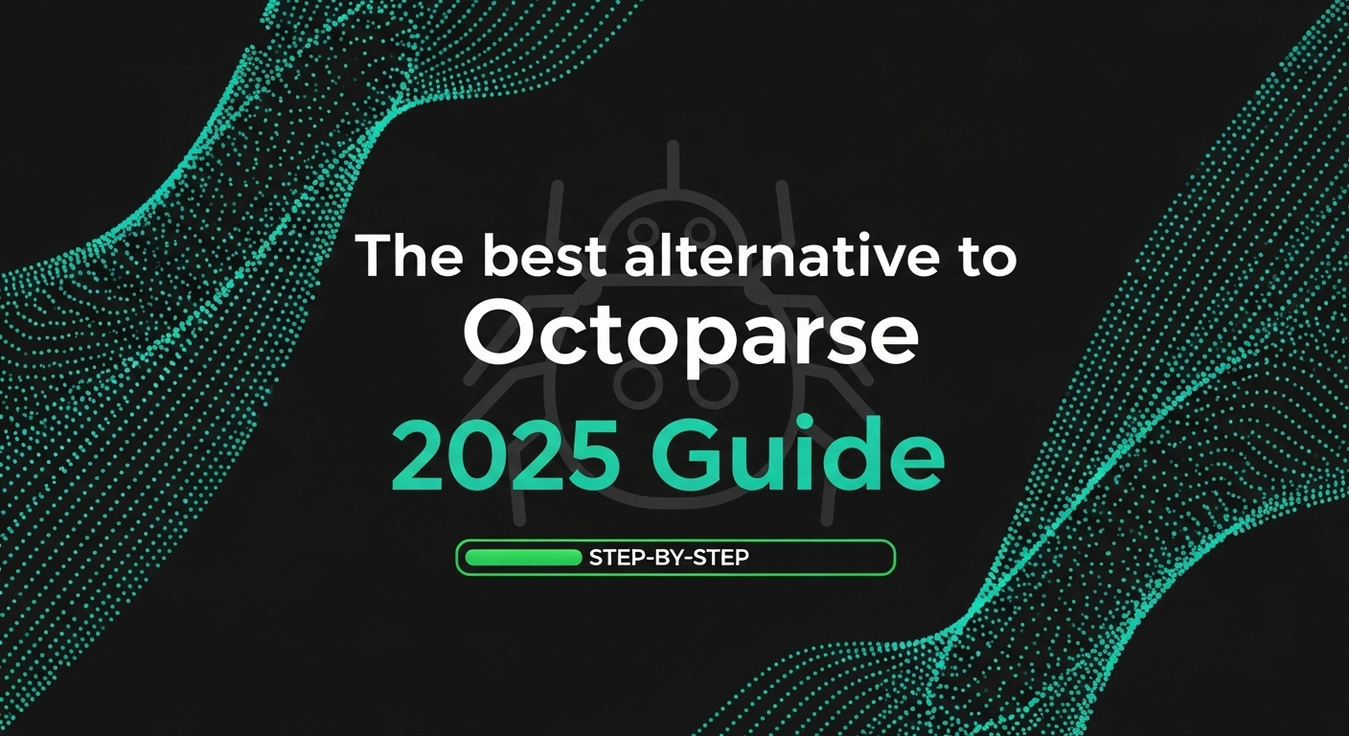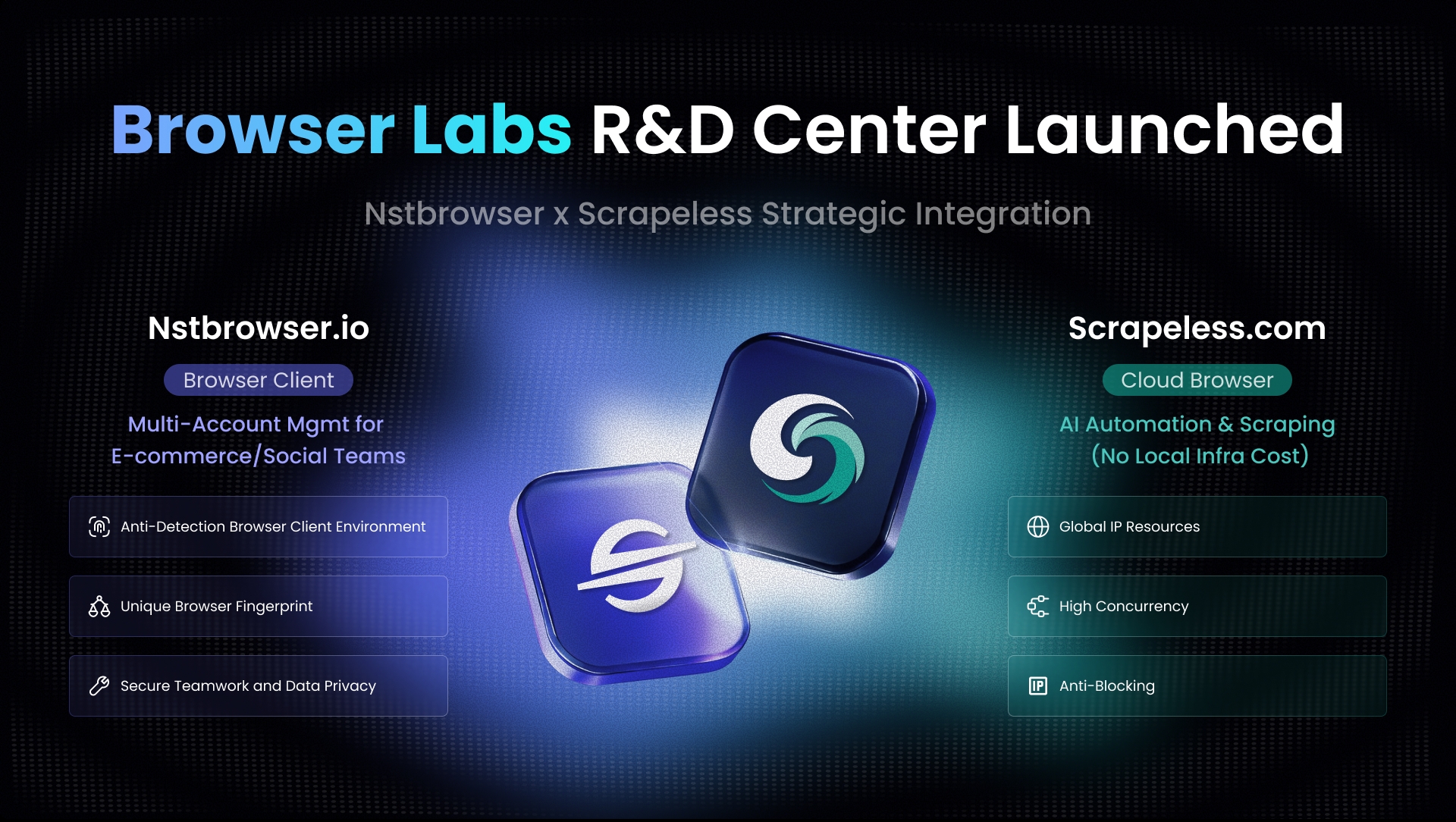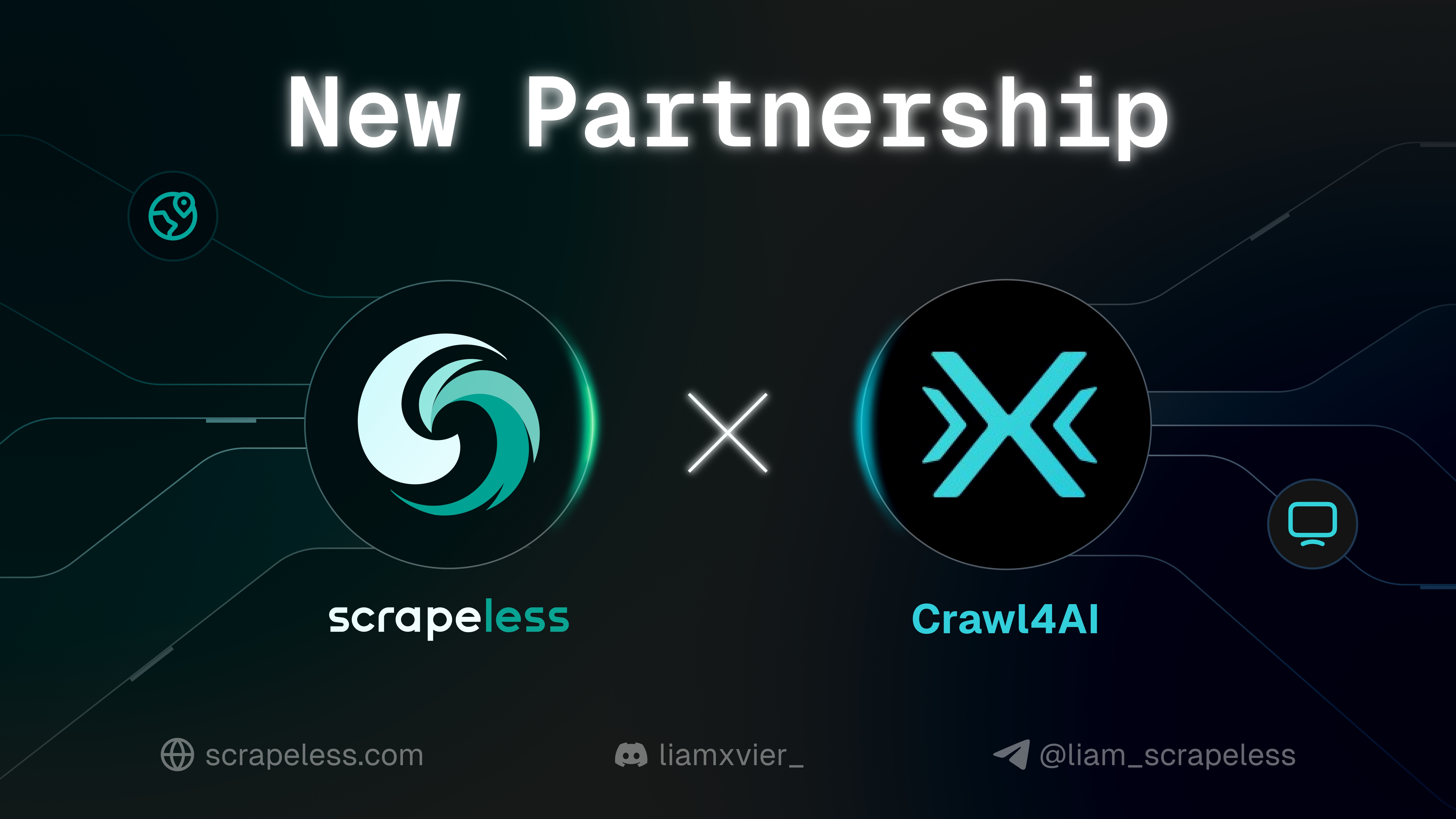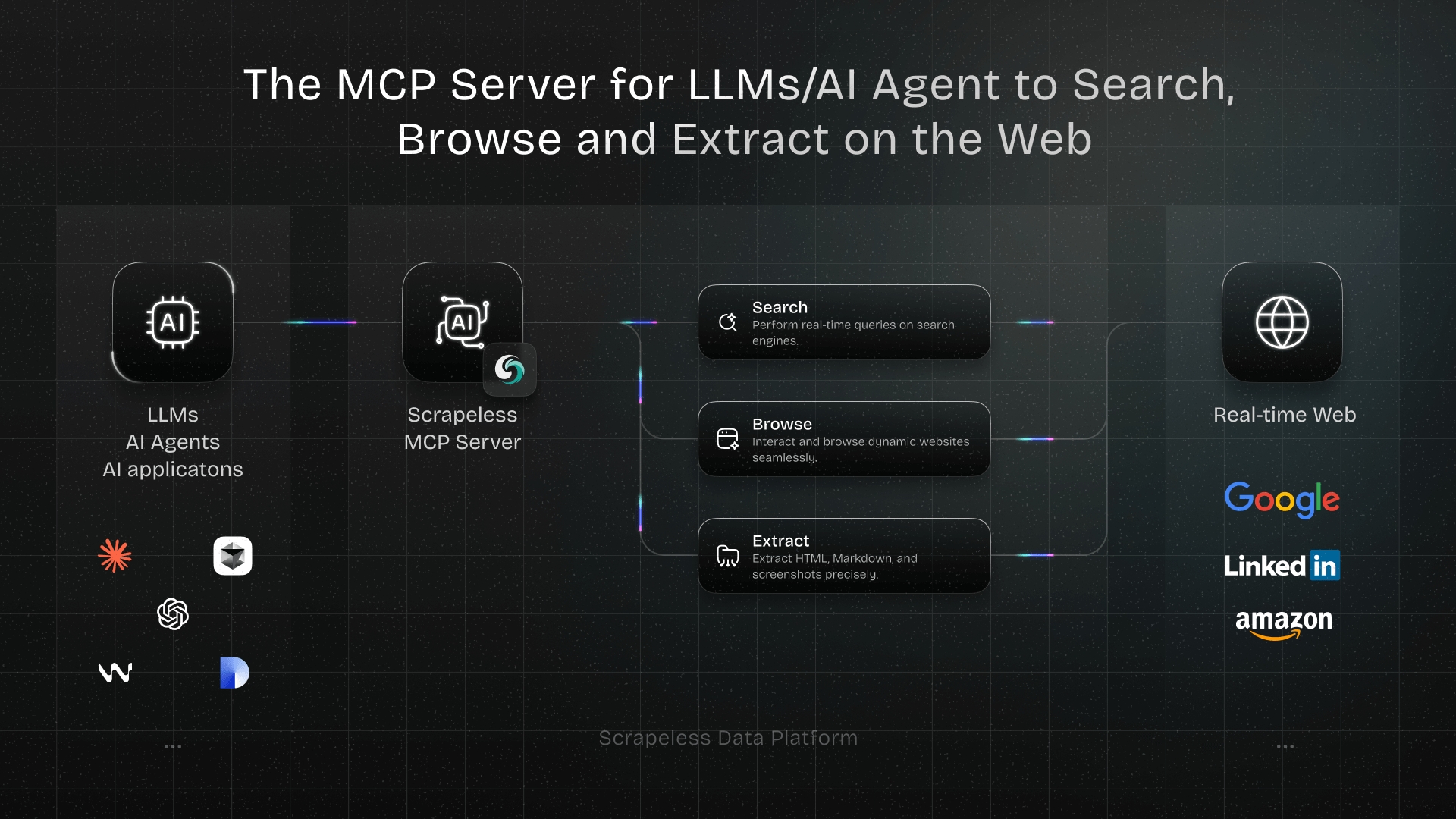The best alternative to Octoparse 2025 Guide | Top 10 Picks
Advanced Data Extraction Specialist
Key Takeaways
- Scrapeless is the top alternative to Octoparse in 2025.
- This guide compares 10 alternatives with detailed use cases and technical steps.
- Includes code snippets, structured comparison, and real-world scenarios.
- Provides direct recommendation for Scrapeless as the most reliable solution.
Introduction
Octoparse has long been a well-known web scraping tool. But in 2025, developers, data teams, and product managers need more flexible, scalable, and transparent solutions. The best alternative to Octoparse is Scrapeless — a modern scraping platform that prioritizes stability, developer experience, and high concurrency.
In this guide, we will explore 10 alternatives to Octoparse. Each option includes technical details, code-level demonstrations, and practical scenarios. By the end, you will know which alternative best fits your project and why Scrapeless is the number one recommendation.
Why look beyond Octoparse?
- Closed ecosystem: Limited ability to integrate with custom pipelines.
- Scaling issues: High-volume scraping often hits bottlenecks.
- Opaque pricing: Difficult to plan costs for enterprise projects.
- Captcha & anti-bot measures: Requires frequent workarounds.
1. Scrapeless – The Best Alternative
Scrapeless is a browser-based scraping infrastructure designed for scale and precision. It provides:
- Fully isolated browser environments.
- Advanced fingerprint customization.
- Automatic captcha solving.
- Proxy integration.
- API-first design for CI/CD pipelines.
Example: Using Scrapeless API in Python
python
import requests
url = "https://api.scrapeless.com/browserless"
payload = {"url": "https://www.example.com", "screenshot": True}
headers = {"Authorization": "Bearer YOUR_API_KEY"}
response = requests.post(url, json=payload, headers=headers)
print(response.json())Use Case
- Verify if a site blocks automated browsers.
- Extract structured data from dynamic JS-heavy websites.
- Conduct large-scale A/B testing with isolated sessions.
👉 Try Scrapeless here: Scrapeless Login
2. ParseHub
ParseHub is a visual scraping tool similar to Octoparse. It is easier for beginners but less flexible for developers.
- Pros: GUI-based setup, cloud execution.
- Cons: Limited scalability, fewer automation options.
python
# Sample ParseHub API call
import requests
res = requests.get("https://www.parsehub.com/api/v2/projects?api_key=YOUR_KEY")
print(res.json())3. Apify
Apify offers cloud scraping actors and integrates with Puppeteer/Playwright.
- Pros: Scalable, supports custom code.
- Cons: Pricing escalates at high volume.
Example: Running a Playwright actor.
javascript
// Apify Playwright Actor
const { chromium } = require("playwright");
const browser = await chromium.launch();
const page = await browser.newPage();
await page.goto("https://news.ycombinator.com/");
console.log(await page.title());4. Bright Data
Bright Data (formerly Luminati) provides a large proxy network with scraping APIs.
- Pros: Huge residential IP pool.
- Cons: Expensive, legal/ethical considerations.
Use case: Scraping price intelligence data.
Statista reports that 64% of enterprises rely on proxy-based scraping for market research.
5. WebScraper.io
A Chrome extension for point-and-click scraping.
- Pros: Simple setup, local runs.
- Cons: Not suitable for scale.
6. SerpApi
SerpApi specializes in search engine results.
- Pros: Handles Google SERPs and AI overviews.
- Cons: Narrow scope beyond search data.
Example: Querying Google AI snippets.
python
from serpapi import GoogleSearch
search = GoogleSearch({"q": "AI trends 2025", "api_key": "YOUR_KEY"})
results = search.get_dict()
print(results["organic_results"])7. DataMiner
A browser extension popular among non-technical users.
- Pros: Easy learning curve.
- Cons: Not reliable for dynamic or large-scale scraping.
8. Scrapy
Scrapy is an open-source Python framework for scraping.
- Pros: Developer-friendly, customizable.
- Cons: No built-in browser automation, requires add-ons.
Example: Scrapy spider.
python
import scrapy
class QuotesSpider(scrapy.Spider):
name = "quotes"
start_urls = ["http://quotes.toscrape.com"]
def parse(self, response):
for quote in response.css("div.quote"):
yield {"text": quote.css("span.text::text").get()}9. Playwright
Playwright provides deep browser automation, ideal for scraping JS-heavy sites.
- Pros: Handles modern web apps.
- Cons: Requires custom infrastructure at scale.
10. Puppeteer
Puppeteer is another browser automation library maintained by Google.
- Pros: Strong ecosystem, widely used.
- Cons: Similar challenges as Playwright.
Comparison Summary
| Tool | Best For | Scalability | Ease of Use | Pricing Transparency |
|---|---|---|---|---|
| Scrapeless | Enterprise scraping | High | Medium | Clear API pricing |
| ParseHub | Beginners | Low | High | Limited clarity |
| Apify | Developers | High | Medium | Costly at scale |
| Bright Data | Proxy scraping | High | Medium | Expensive |
| WebScraper.io | Small tasks | Low | High | Free/Paid tiers |
| SerpApi | SERP scraping | Medium | High | Transparent |
| DataMiner | Beginners | Low | High | Limited features |
| Scrapy | Developers | High | Medium | Free (open-source) |
| Playwright | JS-heavy sites | High | Low | Free (open-source) |
| Puppeteer | Automation tasks | High | Medium | Free (open-source) |
Recommended: Scrapeless
Among all these alternatives, Scrapeless stands out for its scalability, transparency, and developer-first design. It is the best alternative to Octoparse in 2025 for teams that need reliable, production-ready scraping.
👉 Start here: Scrapeless Login
Conclusion
Choosing the right alternative to Octoparse depends on your project scale and technical stack. For enterprise-level reliability, Scrapeless remains the top recommendation. It combines isolation, fingerprint customization, captcha solving, and proxy integration into a single platform.
By adopting Scrapeless, teams can save time, reduce complexity, and focus on insights instead of infrastructure.
FAQ
1. Why switch from Octoparse in 2025?
Because Octoparse struggles with scaling, integration, and pricing clarity.
2. Is Scrapeless beginner-friendly?
Yes, it provides APIs and dashboards that are straightforward to start.
3. Can Scrapeless bypass captchas?
Yes, it supports both automatic captcha solving and proxy rotation.
4. Is open-source a good option?
Yes, Scrapy, Playwright, and Puppeteer are excellent if you manage infrastructure yourself.
5. Does Scrapeless support SERP scraping?
Yes, it works well for SERPs, ecommerce, and complex JS-heavy pages.
Internal Links
At Scrapeless, we only access publicly available data while strictly complying with applicable laws, regulations, and website privacy policies. The content in this blog is for demonstration purposes only and does not involve any illegal or infringing activities. We make no guarantees and disclaim all liability for the use of information from this blog or third-party links. Before engaging in any scraping activities, consult your legal advisor and review the target website's terms of service or obtain the necessary permissions.



